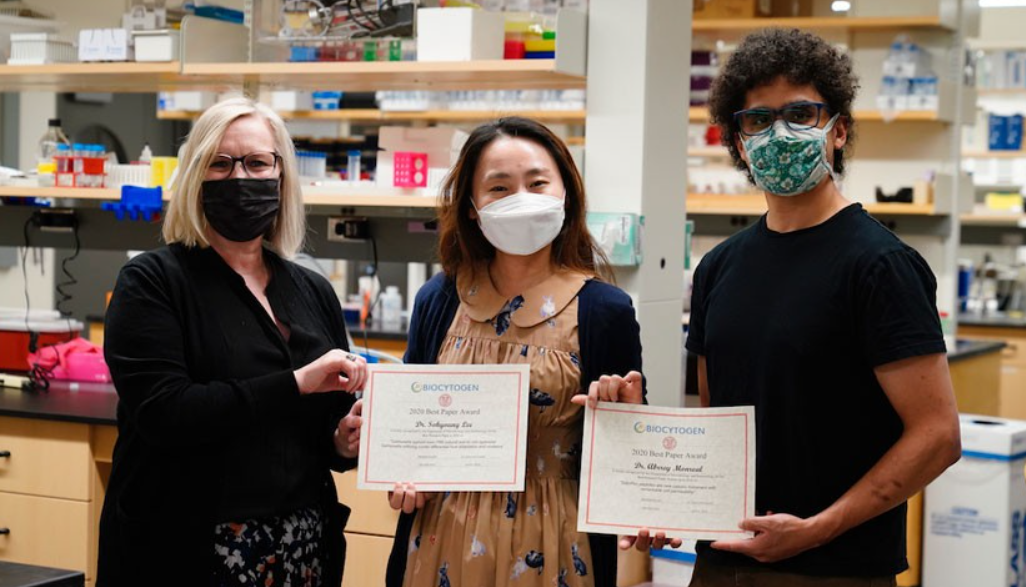Biocytogen Best Research Paper Award commends typhoid toxin and potential peptide therapy research
Boston, May 27, 2021, adapted from Cornell Chronicle,
Graduate students and postdoctoral researchers in the Department of Microbiology and Immunology from Cornell University faced stiff competition for this year’s Biocytogen Best Research Paper Award. Their work in infectious disease and host immune responses has been recognized in peer-reviewed journals, and faculty members faced the difficult task of selecting the winning entries. First- and second-place winners of this year’s award are Drs. Sohyoung Lee and Abrrey Monreal, respectively.
Biocytogen Best Research Paper Award acknowledges excellent graduate student and postdoctoral research published in the preceding calendar year. It is sponsored by a grant awarded to the department, which is housed in the College of Veterinary Medicine, from Biocytogen, a biotechnology company that offers gene-targeted animal models, antibody discovery and other services to the research community. “It has been an honor to partner with Biocytogen. Their commitment to the support of young scientists and innovative basic science is to be commended, and much appreciated,” said Dr. Deb Fowell, department chair and co-director of the Friedman Center for Nutrition and Inflammation, The winner and runner-up receive travel support to attend a scientific meeting of their choice.
According to Fowell, researchers conducted truly outstanding work during difficult personal and professional times throughout the pandemic.
Carol Jennings/Cornell University
From left, Dr. Deb Fowell, chair of the Department of Microbiology and Immunology, with Drs. Sohyoung Lee and Abbrey Monreal, who are the first- and second-place winners of this year’s Biocytogen Best Research Paper Award.
This year’s top prize went to Lee, a postdoctoral researcher in the lab of Dr. Jeongmin Song, for “Salmonella Typhoid Toxin PltB Subunit and Its Non-typhoidal Salmonella Ortholog Confer Differential Host Adaptation and Virulence.” The paper, published in Cell Host and Microbe, offers insight into the host adaptation of Salmonella A2B5 toxins, as well as the design for improved typhoid fever vaccines and therapeutics.
Said Fowell, “The quality of these publications by Drs. Lee and Monreal, and the excellence in entries we saw across the board, leaves us with much to be excited about for the future of microbiology and immunology research.”



